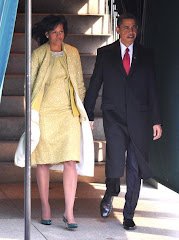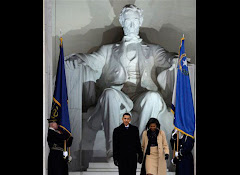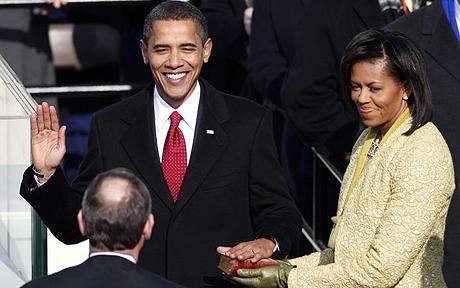

THE WHITE HOUSE
Office of the Press Secretary
_________________________________________________________________
March 11, 2009
REMARKS BY THE PRESIDENT
ON EARMARK REFORM
Room 350
Dwight D. Eisenhower Executive Office Building
11:23 A.M. EDT
THE PRESIDENT: Good morning. I ran for President pledging to change the way business is done in Washington and build a government that works for the people by opening it up to the people. And that means restoring responsibility and transparency and accountability to actions that the government takes. And working with the Congress over my first 50 days in office, we've made important progress toward that end.
Working together, we passed an American Recovery and Reinvestment Act that's already putting people back to work doing the work that America needs done. We did it without the customary Congressional earmarks -- the practice by which individual legislators insert projects of their choosing. We're implementing the Recovery Act with an unprecedented level of aggressive oversight and transparency, including a website -- recovery.gov -- that allows every American to see how their tax dollars are spent and report on cases where the system is breaking down.
I also signed a directive that dramatically reforms our broken system of government contracting, reining in waste and abuse and inefficiency; saving the American taxpayers up to $40 billion each year in the process.
And I've laid out plans for a budget that begins to restore fiscal discipline so we can bring down the $1.3 trillion budget deficit we've inherited and pave the way for our long-term prosperity. For the first time in many years, we've produced an honest budget that makes the hard choices required to cut our deficit in half by the end of my first term in office.
Now, yesterday Congress sent me the final part of last year's budget; a piece of legislation that rolls nine bills required to keep the government running into one, a piece of legislation that addresses the immediate concerns of the American people by making needed investments in line with our urgent national priorities.
That's what nearly 99 percent of this legislation does -- the nearly 99 percent that you probably haven't heard much about.
What you likely have heard about is that this bill does include earmarks. Now, let me be clear: Done right, earmarks have given legislators the opportunity to direct federal money to worthy projects that benefit people in their districts, and that's why I've opposed their outright elimination. And I also find it ironic that some of those who rail most loudly against this bill because of earmarks actually inserted earmarks of their own –- and will tout them in their own states and their own districts.
But the fact is that on occasion, earmarks have been used as a vehicle for waste, and fraud, and abuse. Projects have been inserted at the 11th hour, without review, and sometimes without merit, in order to satisfy the political or personal agendas of a given legislator, rather than the public interest. There are times where earmarks may be good on their own, but in the context of a tight budget might not be our highest priority. So these practices hit their peak in the middle of this decade, when the number of earmarks had ballooned to more than 16,000, and played a part in a series of corruption cases.
In 2007, the new Democratic leadership in Congress began to address these abuses with a series of reforms that I was proud to have helped to write. We eliminated anonymous earmarks and created new measures of transparency in the process, so Americans can better follow how their tax dollars are being spent. These measures were combined with the most sweeping ethics reforms since Watergate. We banned gifts and meals and made sure that lobbyists have to disclose who they're raising campaign money from, and who in Congress they send it to. So we've made progress. But let's face it, we have to do more.
I am signing an imperfect omnibus bill because it's necessary for the ongoing functions of government, and we have a lot more work to do. We can't have Congress bogged down at this critical juncture in our economic recovery. But I also view this as a departure point for more far-reaching change.
In my discussions with Congress, we have talked about the need for further reforms to ensure that the budget process inspires trust and confidence instead of cynicism. So I believe as we move forward, we can come together around principles that prevent the abuse of earmarks.
These principles begin with a simple concept: Earmarks must have a legitimate and worthy public purpose. Earmarks that members do seek must be aired on those members' websites in advance, so the public and the press can examine them and judge their merits for themselves. Each earmark must be open to scrutiny at public hearings, where members will have to justify their expense to the taxpayer.
Next, any earmark for a for-profit private company should be subject to the same competitive bidding requirements as other federal contracts. The awarding of earmarks to private companies is the single most corrupting element of this practice, as witnessed by some of the indictments and convictions that we've already seen. Private companies differ from the public entities that Americans rely on every day –- schools, and police stations, and fire departments.
When somebody is allocating money to those public entities, there's some confidence that there's going to be a public purpose. When they are given to private entities, you've got potential problems. You know, when you give it to public companies -- public entities like fire departments, and if they are seeking taxpayer dollars, then I think all of us can feel some comfort that the state or municipality that's benefitting is doing so because it's going to trickle down and help the people in that community. When they're private entities, then I believe they have to be evaluated with a higher level of scrutiny.
Furthermore, it should go without saying that an earmark must never be traded for political favors.
And finally, if my administration evaluates an earmark and determines that it has no legitimate public purpose, then we will seek to eliminate it, and we'll work with Congress to do so.
Now I know there are members in both Houses with good ideas on this matter. And just this morning, the House released a set of recommendations for reform that I think hold great promise. I congratulate them on that.
Now I'm calling on Congress to enact these reforms as the appropriation process moves forward this year. Neither I nor the American people will accept anything less.
It's important that we get this done to ensure that the budget process works better, that taxpayers are protected, and that we save billions of dollars that we so desperately need to right our economy and address our fiscal crisis. Along with that reform, I expect future spending bills to be debated and voted on in an orderly way, and sent to my desk without delay or obstruction, so that we don't face another massive, last-minute omnibus bill like this one.
I recognize that Congress has the power of the purse. As a former senator, I believe that individual members of Congress understand their districts best. And they should have the ability to respond to the needs of their communities. I don't quarrel with that. But leadership requires setting an example and setting priorities, and the magnitude of the economic crisis we face requires responsibility on all our parts.
The future demands that we operate in a different way than we have in the past. So let there be no doubt: This piece of legislation must mark an end to the old way of doing business, and the beginning of a new era of responsibility and accountability that the American people have every right to expect and demand.
If we're going to solve our economic crisis; if we're going to put Americans back to work; if we're going to make the investments required to build a foundation for our future growth -- then we must restore the American people's faith that their government is working for them, and that it's on their side. That's the government I promised. That's the government I intend to lead.
Thank you very much, everybody.
END 11:33 A.M. EDT






















































